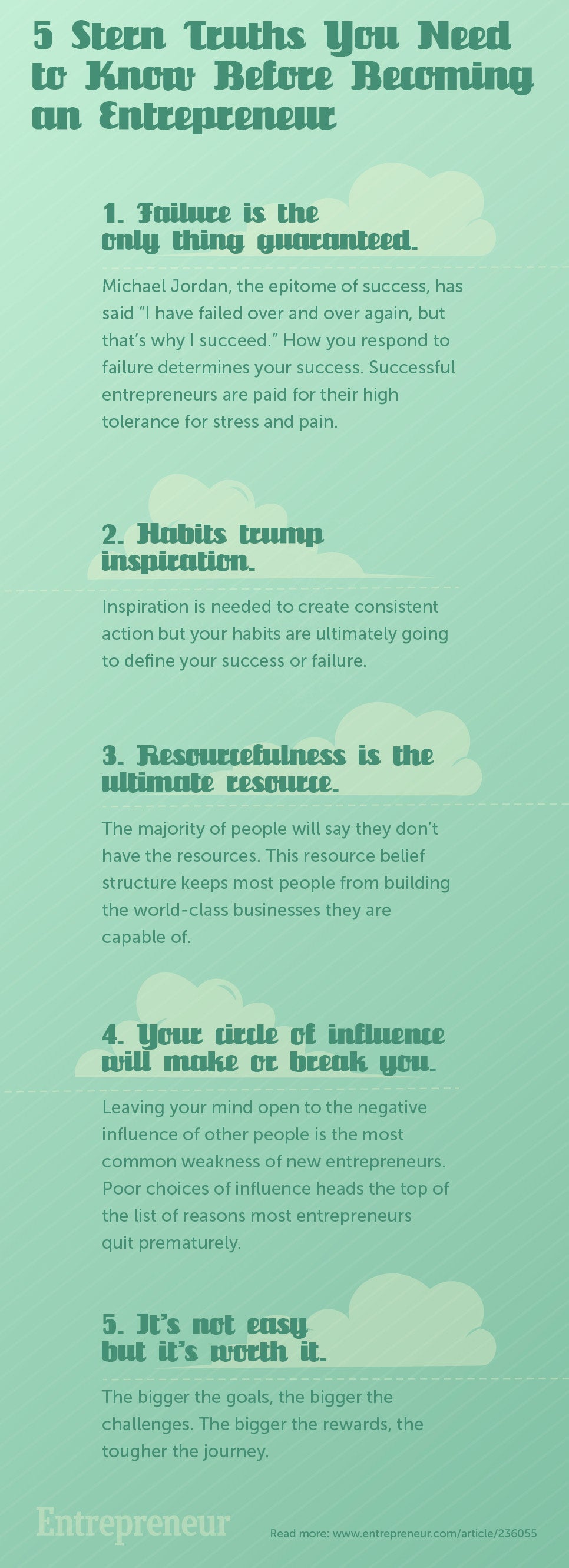
Entrepreneurs have to take big risks in order to succeed, but even well-known leaders are often terrified to leap. In one famous example, fear of failure almost kept Kevin Rose from starting Digg, the enormously successful social news site that made him a multi-millionaire.Over time, he learned to trust his gut by taking the initiative to learn sides of the business that were unfamiliar or scary at first.
You don't have to be a natural risk-taker in order to succeed, and learning how fear works can empower you to overcome it.
When you become fearful and hesitant, your brain is focusing on loss aversion, meaning that it’s trying to protect you from harm. It's an adaptive strategy that kept our ancestors from getting killed.
In that mode, your brain becomes hyper-analytical. It catalogues everything that could go wrong and recalls past memories of failure in an effort to keep you safe. "The unintended consequence is that you get demotivated and don't take any action," says Monica Mehta, author of The Entrepreneurial Instinct (McGraw-Hill, 2012).
Your brain is wired to avoid anything that could harm you, so your aversion to loss is powerful. "Loss aversion is two and a half times more powerful than greed," Mehta says. With a ratio like that, it's no wonder that fear holds so many people back.
But your brain also has a system, known as the reward pathway, that releases feel-good chemicals when you do something novel or thrilling. This system overrides loss aversion and rewards you for taking risks.
"People with naturally active reward pathways focus on novelty or action," Mehta says. To overcome fear, adopt some of their strategies for focusing on the positive side of risk.
Here are three tips to help you do that:
1. Don't weigh the pros and cons. When you're taking a risk, a bit of research and a gut reaction is all you really need to make a good decision. Wading in a swamp of pros and cons will only activate fear. "The more you go into an analytical mode, the more you activate the part of the brain that makes you fearful and demotivated," Mehta says.
If your gut tells you to say yes, then prevent fear from taking over by simply diving in and adapting as you go. That doesn't mean you should be reckless, but the sooner you start to take action, the less likely you are to get scared.
2. Set many small goals. To get comfortable with risk, start small by setting a series of manageable goals that you can accomplish in a short period of time. Include some that are a little scary, but the main purpose here is to experience success repeatedly.
Those early successes will motivate you to seek out bigger risks. "Every time we achieve success, our brains release dopamine, which motivates us to go back and tackle the next success," Mehta says. If you approach a big risk at that point, you'll be primed to take action and less likely to get bogged down in fear of potential losses.
3. Surround yourself with risk-takers. A big part of comfort with risk is exposure. If you have people in your social circle, or especially in your family, who have been willing to take risks, then you will be much more likely to do the same. "There's a huge social aspect to entrepreneurship," Mehta says.
Risk-takers will be more likely to encourage you to take chances, and they will also be living examples of what it takes to risk and fail and risk again. "If you look at the biography of a famous person, it all depends on where in the biography you stop," Mehta says. "Success comes by way of many, many failures."
From Entrepreneur







